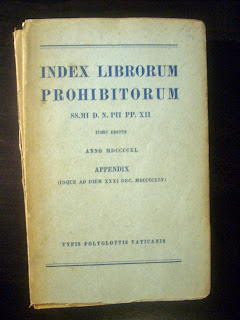--1--
I have thus far avoided doing reviews for this blog, since they have a tendency to quickly turn into overwrought intellectualized op-eds, but I think this has to change soon, lest I become too much of a quietist. Some friends of mine are often surprised at how much I follow movies. This is more a symptom of habits acquired on the job last year than any natural inclination, but I am a natural critic (on occasion I've been ordered not to say anything after viewing a movie for the sake of not prematurely ruining the experience for others). This summer's theater line-up includes several highly-anticipated movies, among them "For Greater Glory." On the heels of all the anticipation, I went to the theater opening weekend. I came out of it wishing I was from south of the border. Several other bloggers have published detailed reviews, including both rants and raves, so I won't beat this horse to death. Despite some of the more critical reviews, I found this film very moving, especially for its portrayal of Bl. Jose Sanchez del Rio. "For Greater Glory" has its flaws (unremarkable score, time restraints curtailed some character development, some slightly off liturgical details), but they don't define the film. The story could have benefited from a more raw portrayal of the main character's internal conflicts, but still a film worth seeing, and a story that needs to be told.
--2--
The past several weeks have seen a wide-spread bemoaning of libraries who have opted to take Fifty Shades of Grey off their shelves. What has resulted is a typical flip-flopping of the title going in and out of circulation, depending on the library and the response of the public. What has once again come to light is the discussion of how libraries select for their collections and how they enforce their circulation and collection policies, along with hefty debate over whether or not porn or erotic lit has a place in libraries. Some argue that removing Fifty Shades of Grey from circulation would be inconsistent, since most libraries have an entire section dedicated to Romance novels, to which I say that if you really can't live without your Danielle Steele, county taxpayers shouldn't be enabling your bad habits. How exactly do romance novels and erotic lit fit into the pursuit of upholding Enlightenment values? It's still ridiculous that some public libraries have decided not to install porn filters out of concern for 'intellectual freedom.' To the best of my knowledge, porn filters aren't expansive enough to prohibit the average patron's internet-browsing needs.
--3--
--4--
Getting new books is even more exciting when they include surprises like this:
--5--
Getting new books is even more exciting when they include surprises like this:
 |
| July 14, 1949 |
--5--
After seeing For Greater Glory and considering all the debate about religious liberty that is occurring in this country right now, I decided last week to re-read Evelyn Waugh's biography of St. Edmund Campion, an English Jesuit who was martyred in the most gruesome way during the reign of Queen Elizabeth I. I was so glad I did. I was first introduced to Campion in grade school, where one of our classes had us re-enact his trial. Looking back in time, I am thoroughly amused that none other than the very studious, but very soft-spoken 13-year old version of myself was cast to play the part of Campion, the tenacious and indomitable Oxford orator with a mastery for public wit. I found it interesting that like the case of the Calles Law in Mexico, the English persecution, which very nearly obliterated the faith in Britain, began with nobility's fear that Catholicism posed a real political threat. Along similar lines, my attention was recently drawn to Pope Pius XI's response to the German Reich's religious restrictions, the encyclical Mit Brennender Sorge, published in 1937, in which he decries the Reich's brutal limitations on religious freedom. I love how Pius draws attention to the presence of human corruption in the Church, emphasizing the universal duty for self-examination and correction (sec. 19), noting that human error is not grounds for the Church to surrender itself to foreign doctrines. Very good reading.
--6--
The New York Public Library has been under fire recently for discussing the possibility of moving some materials to off-site storage and adjust their service hours. Some patrons are already crying apocalypse. NYPL really isn't doing anything radical-library administration is simply trying to work with the limited resources they have in a way that fulfills the research needs of their patrons. It has, however, done a terrible job of telling their public what is going on, and this may be its undoing. Having managed my own library (on a much smaller scale), I know that managers are always motivated by the best interests of their patrons, and are often restricted by money, time, and resources-in other words, they often cannot make the changes and improvements they would like, or cannot implement them in the way that the public expects. The most difficult part is getting the PR right, and while they haven't sensationalized NYPL's situation, NPR could have done more to assuage the situation. Administration probably haven't released blueprints, etc. yet because they either have not actually developed them, or because they were planning to release them to the public in a more graceful way.
--7--
Although I do not own an E-reader of my own, I am always interested in the relationship people have with their e-books. I have no doubt that e-readers are a boon to frequent travelers. I typically have no trouble packing lightly...except for books. I always find some reason that I ought to bring at least 10 books with me on even the shortest trips. A Kindle would save me from these dilemmas. But as Jennifer Fulwiler discussed recently, a book is more than its words. I rather like the way she explained the significance of physical books in nuptual terms:
"My visceral draw to bound pages has made me realize that when a manuscript is paired with a cover image and a font family and a paper weight, a marriage of sorts takes place. Just like with a human marriage, even if these elements are not the perfect match for one another (as in the case of a beautiful text with a dowdy cover), something sacred has happened nonetheless. This mix of elements has combined to form something larger than itself."--8--



No comments:
Post a Comment